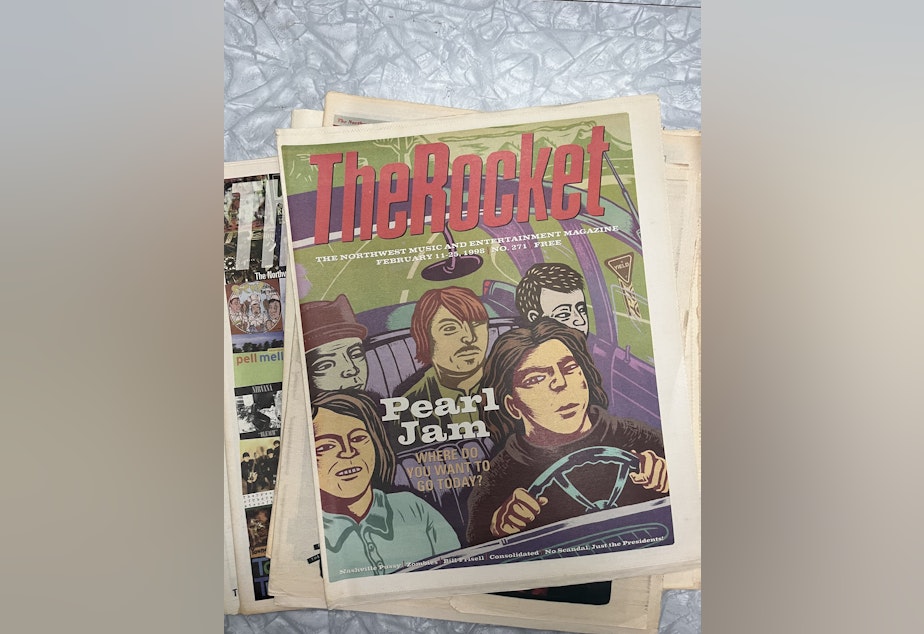20 years of Seattle music history is now online

Once upon a time, when Seattle was at the epicenter of the global grunge music phenomenon, there was a scrappy little paper called The Rocket covering it all, from a front row seat.
Until now, the defunct paper’s archives, spanning from 1979 to 2000, were only available to obsessive collectors who retained physical copies, or folks willing to make the trek to a library on the University of Washington campus.
That’s all changed with the introduction of a digital, searchable archive of all 336 issues of The Rocket now available online.
Freelance music journalist and author Gillian Gaar started at the paper as a volunteer office helper and worked her way up to becoming a senior editor.
“It was really about the only outlet at the time that was covering the independent cultural art scene in Seattle, including music," Gaar said.
Sponsored
She remembers the vital role The Rocket played in a pre-internet era.
For musicians like Carrie Akre of bands like Hammerbox and Goodness, The Rocket didn't just provide a place to be seen — it also helped foster a feeling of community among creatives in Seattle.
“You regularly would check it and get really excited to see if you were in. It was also what I utilized to meet the people who would become the first band I was in, which was Hammerbox," she said.
The Rocket was also a launching pad for visual artists, with comics from Matt Groening and Lynda Barry.
NPR’s Ann Powers started her career there, as did renowned poster artist Art Chantry.
Sponsored
Charles R. Cross has written award winning biographies of Kurt Cobain, Jimi Hendrix, and the Wilson Sisters of Heart. But before all that, he was the longtime owner and editor of The Rocket.
"We were writing about an alternative and youth culture that was one unique to Seattle, because nothing else was like what Seattle arts was into," Cross said.
"And the crazy thing was that what we wrote about in the 1980s and 1990s eventually became the dominant culture in the whole world, which again, still amazes me."
Listen to Soundside's full conversation with Charles R. Cross by clicking the play icon at the top of this story.
You can view The Rocket archives at tinyurl.com/TheRocket.





